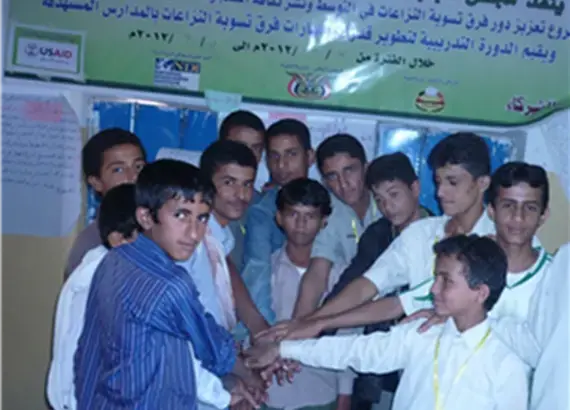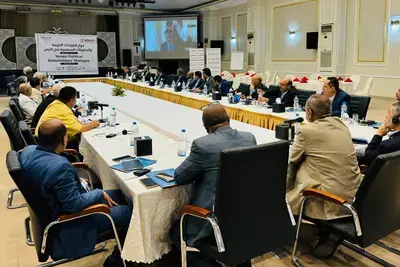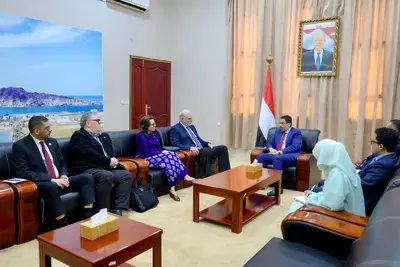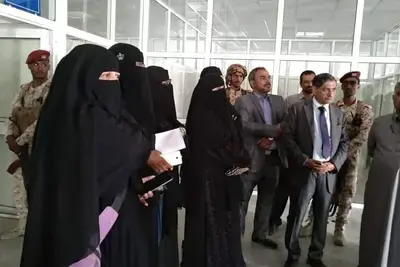
Success Story
Youth Conflict Resolution Program Yields Results in Yemen
NDI recently completed a two-year Conflict Management and Mitigation (CMM) funded program that encouraged young Yemeni citizens to engage their district councils and tribal leaders to advocate for local youth issues; provide conflict prevention training to school students; and serve as conflict mediators among their peers. The active participation of young people in resolving community disputes is critical to Yemen’s current democratic transition.
The Cross Tribal Youth Council Program, which began in May 2010, targeted young men and women in the conflict-prevalent districts of Juba in Marib governorate and Ain in Shabwa governorate.
Youth Councils Project Achievements
- Established peer mediation teams in 20 schools resulting in a reduction in reported conflicts in Marib schools by over 75%.
- Raised more than $7,000 from locally cultivated resources to support conflict mitigation activities.
- Developed a preacher’s manual and trained mosque preachers in Marib who delivered 26 sermons on conflict prevention.
- Assisted or led the resolution of 12 broader tribal conflicts.
- Approximately 500 students and parents trained in conflict prevention and mitigation techniques.
- Reached over 2,000 students and parents in awareness campaigns to counter conflict in education.
- Held formal public meetings with local councils for the first time in each district’s history and worked jointly to implement conflict prevention awareness campaigns.
- Half of the youth council members are women including the Chair of the Marib Youth Council.
In July 2010, NDI established the first youth council in Juba followed by a second youth council in Ain in April 2011. Each group participated in extensive training in conflict resolution, advocacy, fundraising, peer mediation, and team building, with the training backed by conflict simulations to reinforce concepts learned.
In February 2012 the Marib youth council members conducted visits to 15 schools and met with principals, teachers and over 200 students to discuss specific factors and causes of student disputes and how to mitigate such conflict in the schools. In late March 2012, the Shabwah youth council selected 60 students from six schools to serve as peer mediators and conducted training for those teams to develop their practical skills in conflict resolution.
As a result of this successful USAID program, youth in Marib and Shabwah governorates are now a valuable local resource to support conflict mitigation and mediation in their schools and communities.
This article originally appeared in the April 2, 2012 Yemen Mission Director's USAID Weekly Report.
Read more:
Published April 9, 2012



